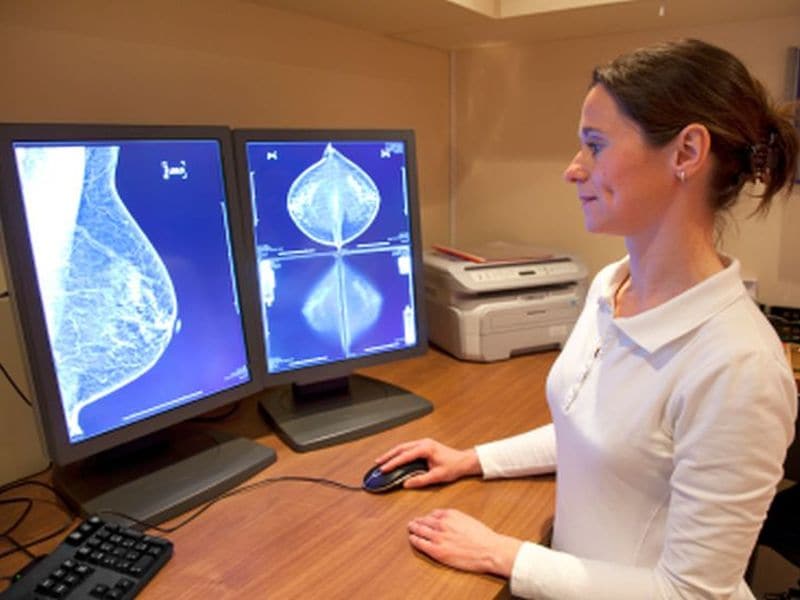Significant improvements seen in rates of invasive disease-free survival, distant recurrence-free survival
TUESDAY, Oct. 6, 2020 (HealthDay News) — For patients with hormone receptor-positive (HR+), human epidermal growth factor receptor 2-negative (HER2−), high-risk early breast cancer (EBC), the addition of abemaciclib to endocrine therapy (ET) increases the two-year invasive disease-free survival (IDFS) rate, according to a study presented at the annual meeting of the European Society for Medical Oncology, held virtually from Sept. 19 to 21.
Stephen R.D. Johnston, M.D., Ph.D., from the Royal Marsden Hospital NHS Foundation Trust in London, and colleagues conducted an open-label, phase 3 study that included patients with HR+, HER2−, high-risk EBC who completed primary treatment. A total of 5,637 patients were randomly assigned to abemaciclib plus endocrine therapy (ET) or ET alone; a prespecified interim analysis was planned at about 293 IDFS events.
The researchers observed a significant improvement in IDFS for abemaciclib plus ET versus ET alone (hazard ratio, 0.747), with two-year IDFS rates of 92.2 and 88.7 percent, respectively. For distant recurrence-free survival (DRFS), the improvement was similar (hazard ratio, 0.717), with two-year DRFS rates of 93.6 and 90.3 percent, respectively. All prespecified subgroups showed consistent benefit. The most frequent adverse events in the abemaciclib plus ET arm were diarrhea, neutropenia, and fatigue, while arthralgia, hot flush, and fatigue were most frequent in the ET-alone arm.
“This is the first study to show that adding a CDK4/6 inhibitor to endocrine therapy significantly improves invasive disease free survival in the adjuvant setting,” a coauthor said in a statement.
Several authors disclosed financial ties to pharmaceutical companies, including Eli Lilly, which manufactures abemaciclib and partially funded the study.
Copyright © 2020 HealthDay. All rights reserved.








